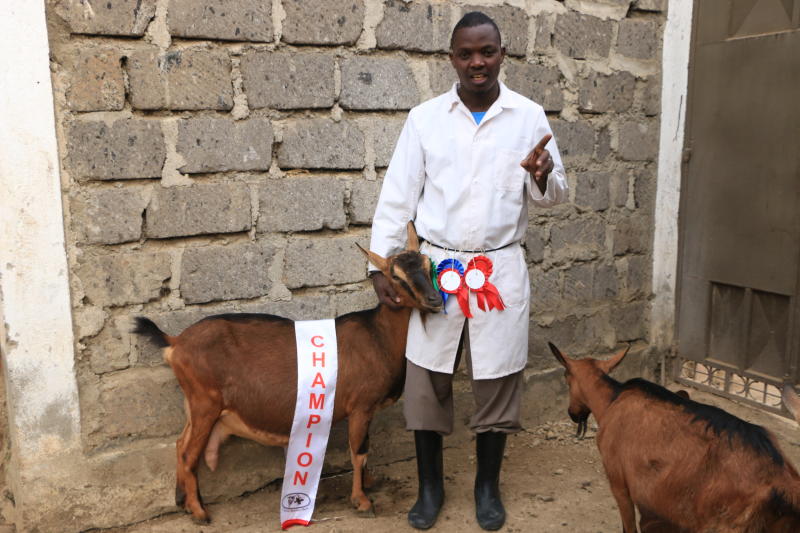
“I started dairy goat farming in 2013 with a single goat gifted to me by my father. The goat would give one litre per day,” says 37-year-old Robert Macharia, owner of Mwihoko Dairy Goat Farm.
His farm sits on less than a quarter acre piece of land, a 20 by 20 feet plot to be exact and it hosts more than 20 mature dairy goats. However, as you enter the compound it is hard to tell there are goats around as there is no ‘goat’ smell to welcome you. “I ensure cleanliness is maintained by raising all the sheds by two feet to so that all droppings and waste fall to the ground. This also ensures they rest well,” says Macharia. The sheds are constructed facing away from the wind because goats are prone to pneumonia.